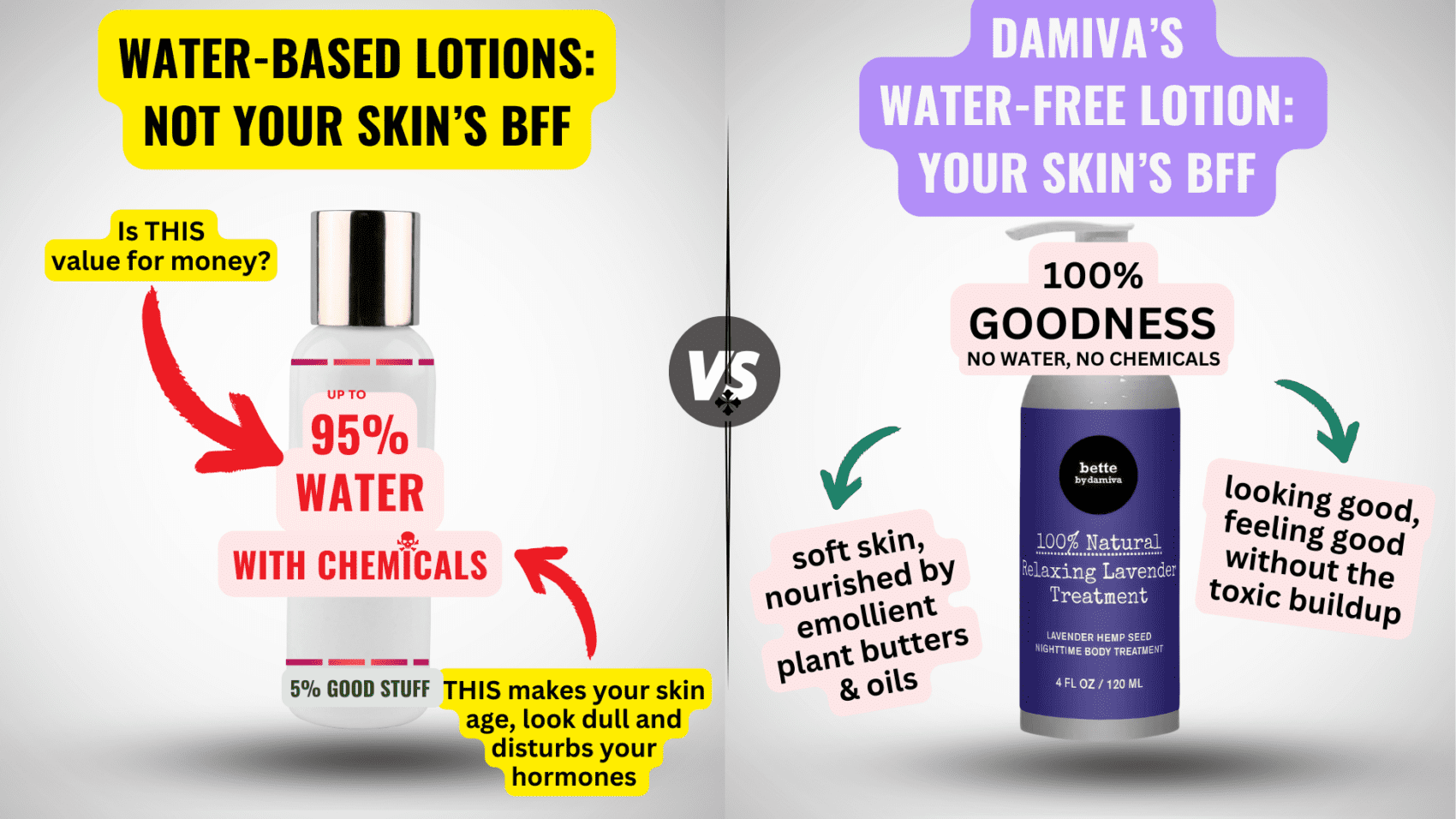Menopause and Sexuality
Menopause is a natural biological process that marks the end of a woman’s reproductive years. However, it often carries a stigma, shrouded in misconceptions and silence, particularly when it comes to sexuality. The transition, typically occurring in a woman’s late 40s or early 50s, is characterized by the cessation of menstruation and a decline in the production of hormones such as estrogen and testosterone. This period can spark a range of physical and emotional changes that influence a woman’s sexual life, yet the topic remains taboo for many.
The Biological Impact of Menopause on Sex
The hormonal upheaval during menopause directly impacts sexual function. Estrogen and testosterone, hormones integral to sexual desire and arousal, decrease significantly. This can lead to diminished libido, changes in sexual responsiveness, and challenges in achieving arousal. Additionally, lower levels of estrogen can result in a reduction of blood supply to the vagina, leading to vaginal dryness and discomfort during intercourse. These physiological changes can make sex less pleasurable and, in some cases, painful, potentially leading to a decreased interest in sexual activity.
Addressing the Taboo: Why We Need to Talk About Menopausal Sexuality
Breaking the silence around menopausal sexuality is crucial for several reasons. Open discussions can dispel myths, provide education, and foster understanding among partners. It can also encourage women to seek help for sexual difficulties during this life stage. By addressing the taboo, we empower women to take control of their sexual health, seek appropriate treatments, and maintain intimacy and a fulfilling sex life post-menopause. Moreover, it can enhance overall wellbeing, as sexual health is an integral part of physical and emotional health.
Physiological Changes and Their Effects on Intimacy
Hormonal Shifts: Estrogen, Testosterone, and Libido
Menopause marks a significant shift in a woman’s hormonal landscape, with estrogen and testosterone levels declining. Estrogen, which is produced by the ovaries, is crucial for maintaining the elasticity and lubrication of the vaginal tissue. As levels drop, women may experience a decrease in sexual desire and arousal. Testosterone, although present in lower quantities in women, also plays a role in libido. The gradual decrease in testosterone that accompanies aging can further dampen sexual desire. These hormonal shifts can make the physical act of sex less appealing and more challenging, leading to a decrease in sexual activity.
Vaginal Dryness and Discomfort During Sex
One of the most common and distressing symptoms of menopause is vaginal dryness. The decrease in estrogen levels leads to a reduction in vaginal lubrication, which can cause discomfort or pain during intercourse. This condition, known as dyspareunia, can make sex less enjoyable and lead to avoidance of sexual activity. Fortunately, there are solutions to this problem, such as water-soluble lubricants and vaginal moisturizers, which can alleviate discomfort. In some cases, vaginal estrogen therapy may be recommended to help maintain vaginal health and comfort during sex.
The Psychological Impact of Physical Changes
The physical changes that occur during menopause can have a profound psychological impact on a woman’s sense of self and sexuality. Feelings of being less attractive or feminine can arise as the body changes, potentially leading to a decrease in self-esteem and sexual confidence. These emotional responses to the physical symptoms of menopause can create a feedback loop, further diminishing libido and the desire for intimacy. It’s important to address these psychological factors, as they can significantly influence a woman’s sexual experience and overall quality of life post-menopause.
Understanding these physiological changes and their effects on intimacy is crucial for navigating the post-menopausal period. With open communication, self-care, and possibly medical intervention, women can continue to enjoy a fulfilling sex life after menopause.
Navigating Relationship Dynamics Post-Menopause
Communication: The Foundation of Intimacy
Post-menopause, the landscape of a woman’s sexuality often changes, and with it, the dynamics of her intimate relationships may shift. Central to navigating these changes is communication, which serves as the bedrock of intimacy. Open dialogue about physical and emotional needs becomes even more critical as couples adapt to the new normal of their sexual relationship. It’s essential to create a safe space where both partners feel comfortable expressing their desires, fears, and experiences without judgment. This fosters understanding and closeness, allowing couples to explore new dimensions of intimacy that may have been previously uncharted.
Understanding and Overcoming Misunderstandings
Misunderstandings can arise when changes in libido or sexual function are misinterpreted as a lack of interest or affection. It’s crucial to recognize that these changes are often a natural part of the post-menopausal experience and not a reflection of one’s feelings towards their partner. By educating each other on the physiological and psychological impacts of menopause, couples can preempt misconceptions and foster empathy. This understanding can help partners avoid taking changes personally and instead work together to find mutually satisfying ways to maintain intimacy.
Rebuilding Intimacy and Connection
Rebuilding intimacy post-menopause may require a redefinition of what sexual connection means to both partners. Introducing new forms of physical closeness, such as cuddling, massage, or simply holding hands, can maintain a sense of connection. It’s also an opportunity to explore other aspects of intimacy, including emotional and intellectual bonds. For some, this may mean finding shared hobbies or interests that bring joy and closeness. For others, it might involve seeking new ways to experience sexual pleasure that accommodate the changes in their bodies. The key is to approach this phase with creativity, patience, and an open mind.
Ultimately, the post-menopausal period can be a time of deepening intimacy and connection if navigated with care, respect, and love. By prioritizing communication, understanding, and a willingness to adapt, couples can continue to enjoy a fulfilling and intimate relationship.

THEN IT CONTAINS TOXIC CHEMICALS. WHY RISK IT GETTING SICK? GO CHEMICAL FREE.
Emotional Wellbeing and Self-Perception
The Link Between Sexuality and Self-Esteem
As women transition through menopause, the changes in their bodies can have a profound impact on their self-esteem. The loss of estrogen and other hormones can lead to physical changes that affect a woman’s sense of femininity and attractiveness. This, in turn, can influence her sexual self-esteem and desire for intimacy. It’s not uncommon for women to feel less confident in their sexual identity during this time, which can create a barrier to engaging in and enjoying sexual activity. However, it’s important to recognize that these feelings are a natural response to the body’s changes and that sexuality can still be a source of pleasure and connection post-menopause.
Rediscovering Sensuality Beyond Sex
Menopause can be an opportunity to redefine what sensuality means on a personal level. Moving beyond the narrow definition of sex that focuses on intercourse, women can explore a broader spectrum of sensual experiences. This might include non-sexual physical touch, intimate communication, or shared activities that foster closeness with a partner. Embracing a wider view of sensuality can help women reconnect with their bodies and find pleasure in new and fulfilling ways.
Coping with Identity Shifts During Menopause
The transition through menopause can feel like an identity shift for many women. As their reproductive capabilities come to an end, they may struggle with a sense of loss or confusion about their role and how they are perceived by society. It’s crucial to acknowledge these feelings and seek support, whether through conversations with friends, counseling, or support groups. By addressing these emotional challenges head-on, women can begin to embrace the new phase of life with confidence and positivity, finding strength in the wisdom and experience they’ve gained over the years.
Ultimately, the journey through menopause is deeply personal, and each woman’s experience with her sexuality will be unique. By focusing on emotional wellbeing and self-perception, women can navigate this transition with grace and emerge with a renewed sense of self and an appreciation for the intimate connections that enrich their lives.
Practical Strategies for Enhancing Post-Menopausal Sex Life
Medical Interventions: HRT and Testosterone Supplements
For many women, the post-menopausal period can bring about significant changes that affect their sex life. One practical strategy to address these changes is through medical interventions such as Hormone Replacement Therapy (HRT) and testosterone supplements. HRT can alleviate symptoms like vaginal dryness and discomfort by replenishing estrogen levels, which often decrease after menopause. Testosterone supplements, on the other hand, may be prescribed to enhance libido, as testosterone plays a crucial role in sexual desire. It’s important to consult with a healthcare provider to discuss the benefits and eventual risks associated with these treatments, as they can vary based on individual health profiles.
The Role of Lubricants and Vaginal Moisturizers
Another key aspect of improving post-menopausal sex life is the use of lubricants and vaginal moisturizers. Water-soluble lubricants should be avoided due to the chemical preservatives, which disturb the delicate hormone system. Water-free, chemical-free vaginal moisturizers, such as Damiva Mae or Cleo, can be used regularly to maintain vaginal moisture and health. These products are available over-the-counter and can be a simple yet effective way to improve sexual comfort.
Lifestyle Changes: Exercise and Pelvic Floor Health
Lifestyle modifications can also play a significant role in enhancing sexual well-being after menopause. Regular exercise can improve blood flow, increase energy levels, and boost self-esteem, all of which contribute to a healthier sex life. Additionally, focusing on pelvic floor health is crucial. Pelvic floor exercises, also known as Kegel exercises, strengthen the muscles that support the uterus, bladder, and bowels, which can improve sexual sensation and orgasmic potential. Incorporating these exercises into your daily routine can lead to long-term benefits for your sexual health.
By combining medical interventions with practical lifestyle changes and the use of lubricants and moisturizers, post-menopausal women can reclaim and enhance their sexual experiences. It’s essential to approach these strategies with an open mind and a willingness to experiment to find what works best for you and your body.

The Role of Self-Care and Body Positivity
Rebuilding Self-Confidence and Body Image
Menopause can bring about significant changes in a woman’s body, which may affect her self-esteem and body image. It’s common for women to feel less attractive or struggle with their changing appearance. However, rebuilding self-confidence and embracing one’s body post-menopause is crucial for a fulfilling sex life. To foster a positive body image, it’s important to focus on the aspects of oneself that are appreciated and to practice self-compassion. Engaging in activities that make one feel good, such as dressing in clothes that flatter the new body shape or trying out a new hairstyle, can also boost confidence. Additionally, surrounding oneself with supportive friends who provide positive reinforcement can help in embracing the natural changes that come with aging.
Self-Care Practices to Enhance Sexual Wellbeing
Self-care is essential for maintaining sexual wellbeing after menopause. This includes prioritizing one’s own needs and taking time to relax and de-stress. Regular physical activity not only improves overall health but can also enhance sexual function by increasing blood flow and improving mood through the release of endorphins. Pelvic floor exercises can strengthen the muscles and enhance sexual sensation. Mindfulness and meditation can help manage symptoms of menopause that may interfere with sexual desire, such as anxiety and mood swings. Additionally, exploring new ways to experience pleasure, both solo and with a partner, can revitalize one’s sex life.
The Importance of a Supportive Partner
A supportive partner plays a pivotal role in the sexual wellbeing of women post-menopause. Open communication about sexual needs, desires, and any difficulties faced is key to maintaining intimacy and a satisfying sex life. Partners can support each other by being patient, understanding, and willing to explore new forms of sexual expression that accommodate the changes experienced during menopause. It’s also important for partners to educate themselves about menopause so they can empathize with the physical and emotional changes their partner is going through. Together, couples can find creative solutions to any sexual challenges, ensuring that their relationship continues to thrive.
By the way, something for you, a little gift!!!
I am just in the middle of publishing my book. It’s about How women can balance their hormones. One part is about food and diet, of course.
Follow this link and enter your email.
I will send you this part of the book for free once the book is published. It has many concrete, practical tips and recipes and will help you feel better during menopause or times of Big hormonal fluctuations.
Annette, Damiva Lead for Health & Wellness

Conclusion: Embracing a Fulfilling Sex Life After Menopause
Individual Differences and Personal Journeys
Menopause is a deeply personal experience, with each woman’s journey marked by its own unique set of challenges and transformations. It’s important to recognize that there is no one-size-fits-all narrative when it comes to post-menopausal sexuality. Some may find their desire for intimacy reignited, while others may need to explore new dimensions of their sexuality. Embracing these individual differences is key to understanding and accepting one’s own path to sexual fulfillment after menopause.
The Power of Agency in Sexual Health
One of the most empowering aspects of navigating post-menopausal sex life is the realization of one’s own agency. Women have the power to seek knowledge, communicate their needs, and make informed choices about their sexual health. Whether it’s exploring hormone replacement therapy, trying out new lubricants, or engaging in pelvic floor exercises, taking charge of one’s sexual well-being can lead to a more satisfying and enjoyable sex life.
Final Thoughts and Encouragement
As we conclude, it’s essential to offer words of encouragement to those embarking on this new chapter. Remember, menopause is not an end but a transition, one that can lead to a richer, more fulfilling sexual experience. It’s a time to explore, to communicate, and to rediscover what brings pleasure and connection. With patience, self-care, and a willingness to adapt, a rewarding sex life after menopause is not just possible—it’s within reach. So, embrace this journey with optimism and an open heart, knowing that the best may be yet to come.











